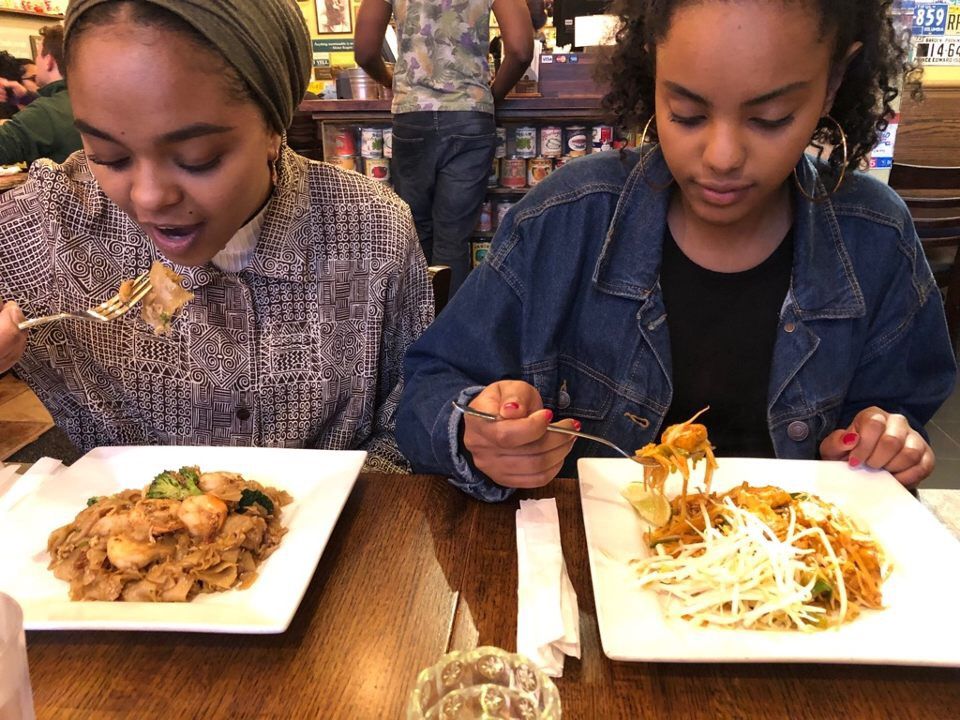In Islam, Ramadan is the ninth month of the Islamic calendar where Muslims take the 29 or 30 days to fast, pray and dedicate themselves to their religion. Ramadan also serves the purpose of bringing Muslims together in their meals in celebration of their faith – seen clearly in the tight-knit community of Muslims on the Northwestern campus. To learn more about the full experience of Ramadan, I talked to one of my closest friends and suite-mate, Rwan Ibrahim, a first-year in Weinberg, to learn about her habits during this holy month.
One of the most important features of Ramadan is the fasting from sunrise to sundown. “Fasting is one of the best ways to attain Taqwa, an Islamic term meaning getting closer to God (Allah) spiritually,” said Ibrahim. “Taqwa strengthens the beliefs, intentions and love Muslims have for their God, religion and prophet Muhammad. It enables them to become a better human being and better follower of Islam.” To start off her morning before fasting, Ibrahim eats a meal, suhoor, to prepare her body for the day. Next, there is the morning prayer before sunrise called fajr. According to Ibrahim, after fajr they start fasting. Ibrahim prefers to sleep before suhoor and then wake up around 3:30 a.m. to get ready for the feast and prayer that's said around 4 a.m. However, according to Ibrahim, many Muslim students choose to stay awake until suhoor and only go to sleep after starting their fast. Ibrahim’s morning prayer and meal happen with other Muslim friends in one of the kitchens in her dorm, where everyone brings food like “bananas from the dining hall.” Then, Ibrahim goes back to sleep and wakes up again before classes.
During the day, Ibrahim does what any other student does here at Northwestern: she studies, goes to her classes and takes naps throughout the day. However, her naps are more due to physical exhaustion than the regular laziness other students may face.
“Your body’s just drained,” she said. “I definitely try to get at least one nap a day – daily naps are a must.”
Ibrahim’s schedule differs during Ramadan because she does not snack, drink water or go to dining halls. She does, however, pray two times during the day. The two prayers – dhuhur and asr – fall at times between fajr, the prayer at sunrise and maghrib, the prayer that happens at sundown. Where she prays varies depending on her schedule and where she is on campus. These places for prayer may include the meditation rooms in Norris or Tech, prayer rooms in Norris or the Multicultural center.
The anticipation for maghrib is heightened in her final hours of fasting. The Maghrib prayer, the fourth obligatory daily prayer, is right after sunset and marks the end of fasting for that specific day. This is followed by the breaking of the fast at around 8 p.m. According to Muslim tradition, breaking the fast starts off with a date and water. She usually does this in Plex East, a dining hall that offers open Ramadan meals every day from 8 to 10 p.m. This feast, known as iftar, is where Muslims once again get together to reflect on God and their holy day. A little while after iftar, the last obligatory prayer of the day, isha, is performed. Following isha is the beginning of nightly prayers called taraweeh, which “is not mandatory but very important in order to strengthen a Muslim’s connection with God.” These final prayers of the day happen in Parkes Hall at 10 p.m. – which is booked for the whole month of Ramadan – and can last from two to three hours.
Although fasting for so long during the day may seem like a daunting task for anyone who has never fasted before, Ibrahim assures me that fasting gets easier and easier with each day. “The first day is always the worst because your stomach’s just not used to it,” she said. “But then your stomach kind of shrinks and you get used to it”. According to Ibrahim, because her body gets used to the fast she’ll usually eat only a little bit during iftar and quickly feel full.
However, Ibrahim did confess that feeling hungry, thirsty and tired are common. “I personally feel a little thirsty all the time because I walk around all day,” she said.
Although this may be true, Ibrahim says her commitment to the fast relies a lot on her Muslim friends who are also fasting. “It makes it easier,” she said. “It’s just a good support system.”
Other than fasting, Ramadan’s main objectives are to further a Muslim’s connection to God and the religion, and to become a better person. For Ibrahim, taking part in Ramadan allows her to self-reflect and dedicate herself more to her religion. “You’re praying more, remembering God more, surrounding yourself with other people who are Muslim more, so there definitely is a lot of spiritual growth,” she said. “We strive to be better to people around us, give to charity and strengthen our character enough to have a lasting effect throughout the year. A main goal during Ramadan is to be better than you were before and to become even better in the year to follow until the next Ramadan.”
